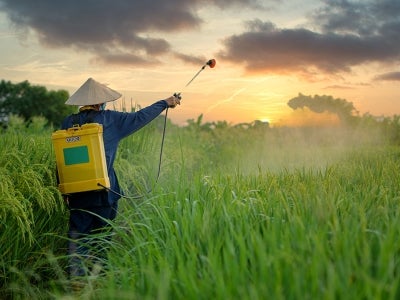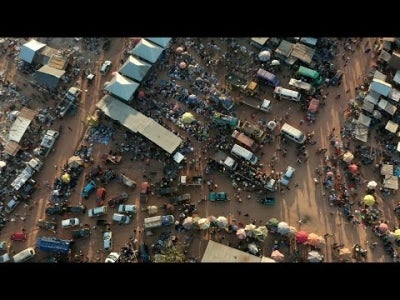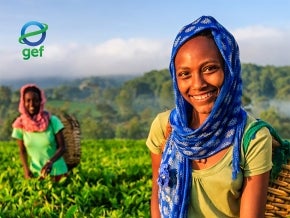
The governments of Bangladesh, Indonesia, Pakistan, and Viet Nam have joined forces to fight chemical pollution, launching a joint $43 million program to manage and reduce hazardous chemicals in their textile industries.
Employing over 10 million people, the four nations’ textile sectors account for near 15% of global clothing exports. However, the economic benefits of the industry come at a cost, with the sector being one of the world’s major users of persistent organic pollutants (POPs) and per- and polyfluoroalkyl substances (PFAS), a family of approximately 12,000 synthetic chemicals which do not break down and accumulate in the environment, threatening human and ecosystem health.
Wet processing factories, where materials are turned into fabrics through bleaching, printing, dyeing, finishing, and laundering typically use 0.58 kg of chemical inputs for every 1 kg of fabric produced. These compounds leak into the environment at all phases of the textile lifecycle, from production to use, disposal, and recycling.
Led by the UN Environment Programme (UNEP), with the financial backing of the Global Environment Facility and the support of the Basel & Stockholm Convention Regional Centre South-East Asia, and the Natural Resources Defense Council, the "Reducing uses and releases of chemicals of concern in the textiles sector" program will provide technical support and tools for small and medium-sized enterprises (SMEs) and manufacturers to improve their knowledge and management of hazardous chemicals, guiding them to manage risks to workers, and eventually eliminate the worst chemicals from their production processes.
“The textile sector is a major user of toxic ‘forever chemicals’ which pollute local and global ecosystems,” UNEP Chemicals and Waste Programme Officer Eloise Touni said.
“While governments have agreed global bans of the worst chemicals through the Stockholm Convention on POPs, value chains still use thousands of hazardous chemicals like PFAS. UNEP is proud to work with governments and front-runner companies to scale up best practices and phase out chemicals of concern across the whole sector”.
The five-year program will bring the four countries together to align public policy on the textile sector with international best practice, including on supply chain transparency, investment for chemical management and eco-innovation, and occupational health and safety, creating the enabling environment needed to phase out PFAS and other chemicals of concern.
General Manager of Corporate Sustainability and Chemical Management at Pakistani textile manufacturer Interloop Limited Fauz Ul Azeem said processing mills often lack the awareness and technical expertise needed to manage chemicals according to best practices.
“For any production facility, phasing out any chemical from the running inventory is a painful task,” Mr. Ul Azeem said. “They need to realign all the running processes after a careful analysis of quality, regulatory, and cost impacts.”
“This project will help stakeholders to understand upcoming global mandatory requirements and how a proactive approach can help them avoid a business impact. It will help them learn that considering environmental impacts in their decision making can lead to long term benefits.”
Senior Joint Secretary of the Ministry of Climate Change in Pakistan, Syed Mujtaba Hussain said the country was keenly aware of the need to reform the textile industry in order to reduce its environmental impacts and meet Pakistan’s international obligations.
“The textile wet processing stage is an environmental ‘hotspot’ in terms of water pollution, ecosystem, human health, and climate impacts due to the high use of chemicals and of fossil fuel-derived energy,” Mr. Hussain said.
“We welcome this project, which will help this important sector to reduce its pollution while accessing new markets for continued growth.”
This article was originally published by UNEP.


